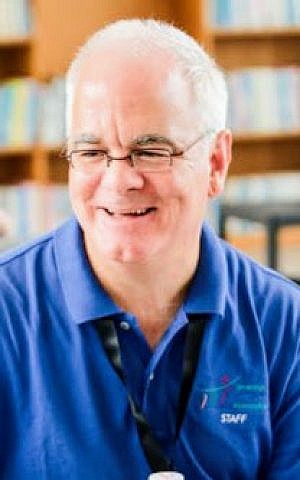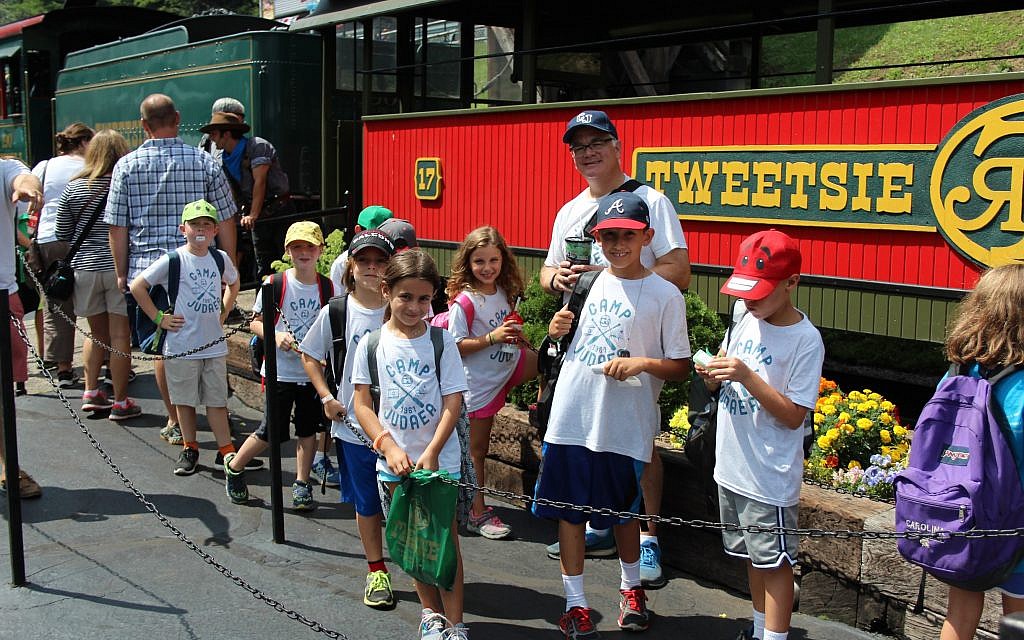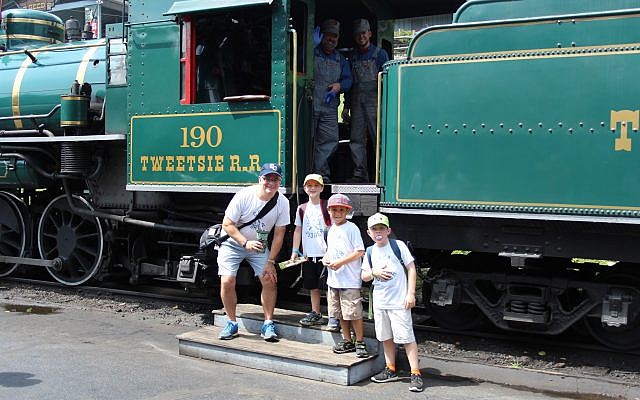Never Too Old: Lessons from a Life at Camp
Like many Jewish kids, Tom Rosenberg’s camp experience started at Blue Star Camps in Hendersonville, N.C. But unlike most Jewish kids, his camp experience never ended.
Like many Jewish kids, Tom Rosenberg’s camp experience started at Blue Star Camps in Hendersonville, N.C. But unlike most Jewish kids, his camp experience never ended. As President and CEO of the American Camp Association in Atlanta, Rosenberg is still working from the first lesson he learned at camp as an 8-year-old.
“The more that you put into camp, the more you get out of it,” he said.
Born in New Orleans, Rosenberg’s family moved far from Blue Star while he was still a child, all the way to San Luis Obispo, Calif. It wasn’t until he was in college at Tulane University looking for a summer job that he returned to Hendersonville to work as a counselor. Even then, camp didn’t seem likely to become his career.

“I thought I was done and went off to start a career in commercial banking and went back to grad school three years later thinking about strategy consulting, and I ended up getting a phone call from my camp director back at Blue Star, Rodger Popkin,” Rosenberg said.
Asked to become the next camp director, Rosenberg considered his options and jumped in headfirst.
“Getting outside into the mountains or into the woods and being able to develop friendships and relationships and build community really felt very impactful. I wanted to be a part of that,” he said.
Rosenberg explained that he was split between a love of business and a love of teaching, and that being camp director allowed him to lean into his teacher side and focus on building a community.
He spent 22 years as director of Blue Star before his wife, Atlanta native Pam Sugarman, decided she wanted to return to her hometown to be closer to family while raising their son, Daniel.
So, Rosenberg stepped in as director of Camp Judaea, with offices in Atlanta. He spent five years with the program until he was invited to apply for his current role at the ACA, an organization he knew well as a volunteer.
The ACA is a leading authority in youth development and strives to preserve, promote and improve the camp experience, according to its website. It has its own accreditation system for camps, which are not strictly regulated in some states, guaranteeing high standards for parents choosing a camp.
In addition to reflecting on his decades of experience as a camp director, Rosenberg also discussed the importance of camp experiences for children today who are incredibly well connected to the world through technology but can sometimes struggle with person-to-person contact.

“Where else can a young person put their phone away for two weeks, three weeks or four weeks and learn to communicate effectively, eye to eye? And you’re learning to compromise, discuss, argue, negotiate – all those human skills are so essential.”
He added that while school does a good job teaching academic skills, camp has a role to play in developing emotional and social skills that are difficult to cultivate in other environments.
“Think about how scheduled kids today are, but at camp you have the opportunity to make choices for yourself, good and bad,” Rosenberg said. “One of the most important things kids can learn at camp is how to try new things, take positive risks, make mistakes and learn from those mistakes.”
Discussing how Jewish camp is so central to Jewish identity in the U.S., Rosenberg said that camp is a unique vehicle for learning.
“If we want to teach Torah or Pirkei Avot [Ethics of the Fathers], it’s an amazing place to focus on not only what you read, but how you live,” he said. “When I was growing up at camp, we talked about living Judaism.”
He also explained that part of the importance of camp is in forming lifelong connections, recalling his relationship with the son of an Atlanta icon, the late Rabbi Jacob Rothschild.
“Billy Rothschild was my bunk counselor when I was 10 years old. He was a banjo player back then and we called him Banjo Billy. I still see him on occasion around town,” he said. “When you have young adults that are teaching children who are then going to grow up and share the same community, that’s really powerful.”
“I found my faith in the woods, in the mountains with other people, testing myself and learning to explore,” he added.
Rosenberg also noted that while camp is most common for children and young adults, there are similar opportunities out there for those of every age group, from 20s and 30s all the way to senior excursions and activities.
“We all need a little camp in our lives, even when we’re older,” he said.




comments